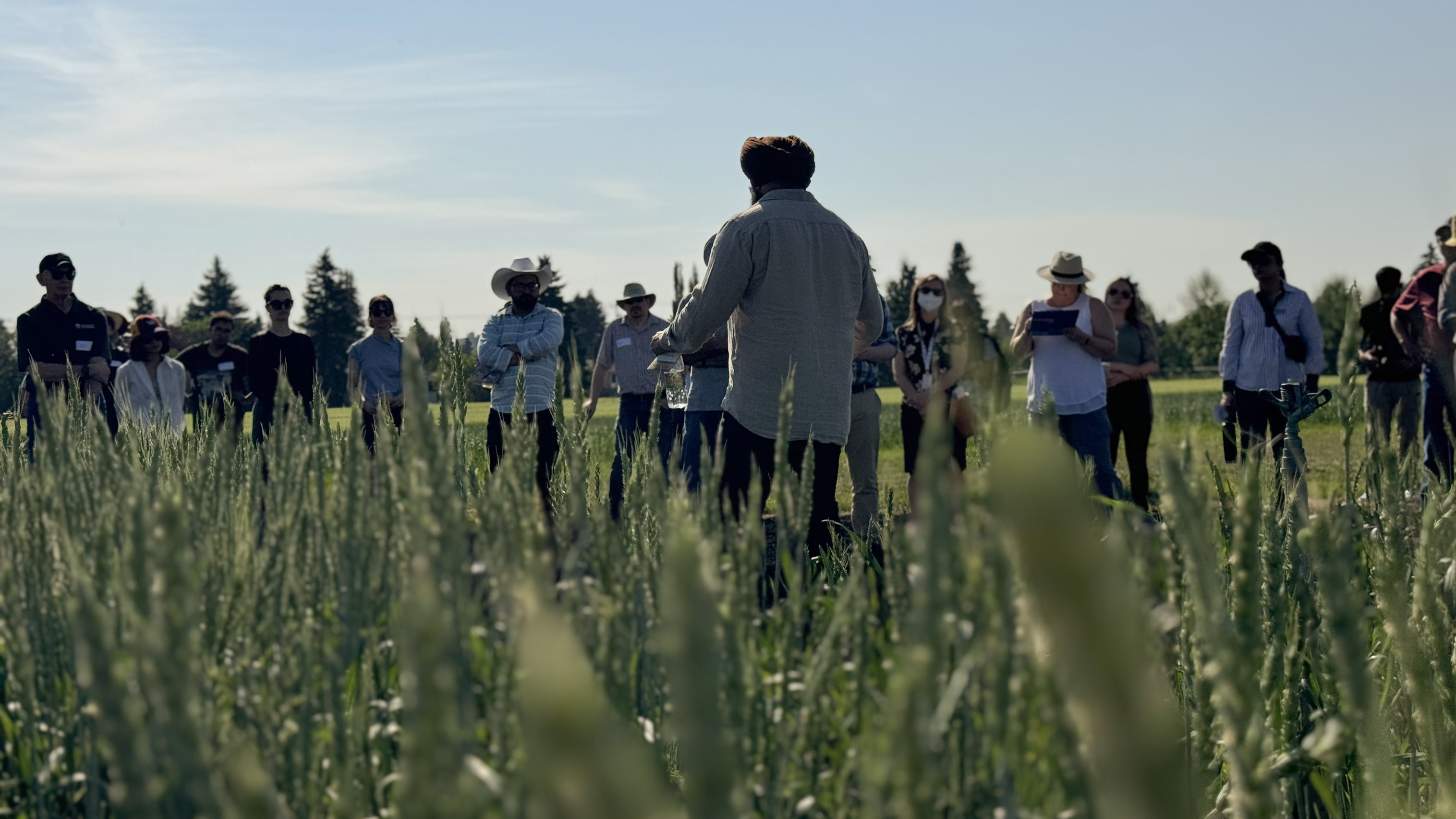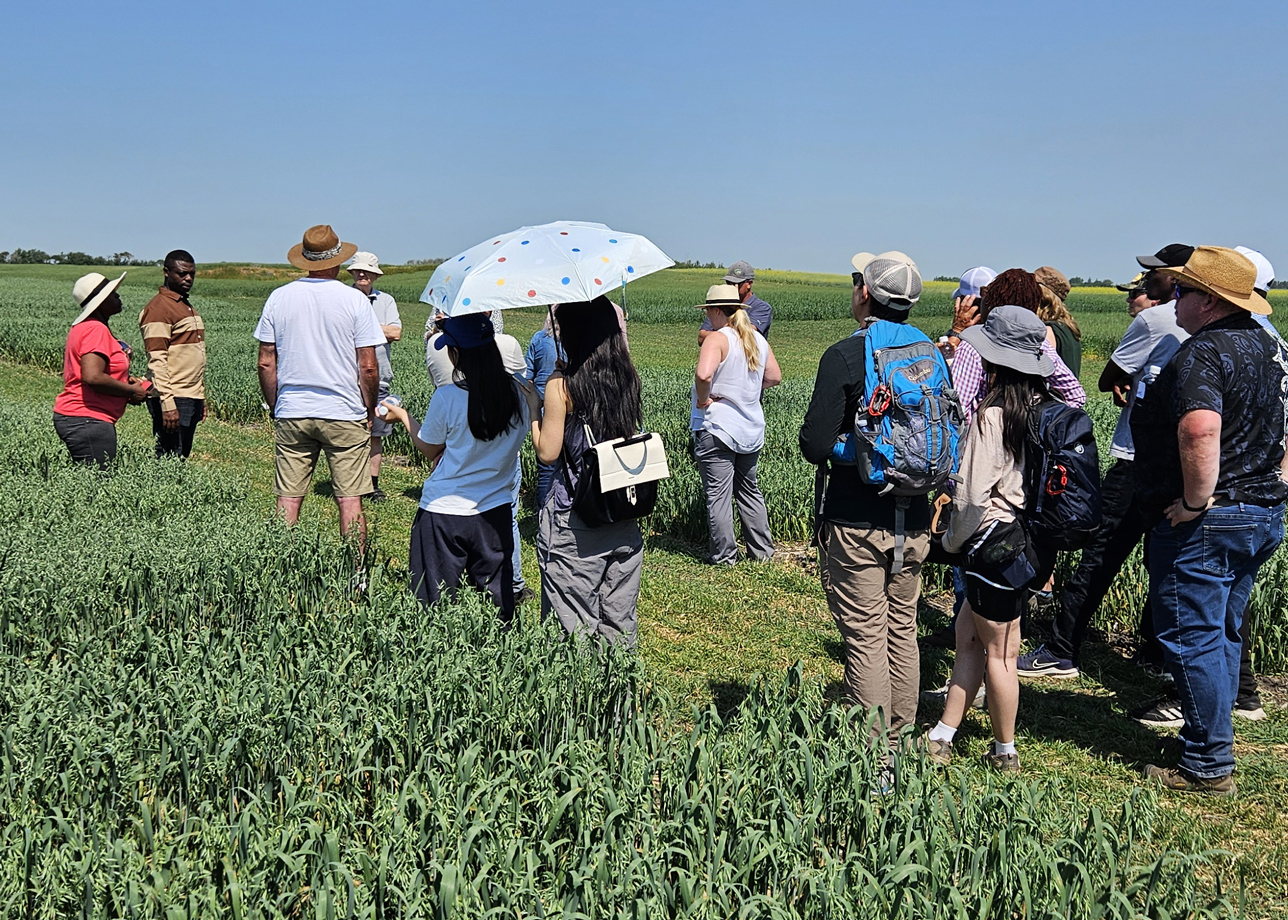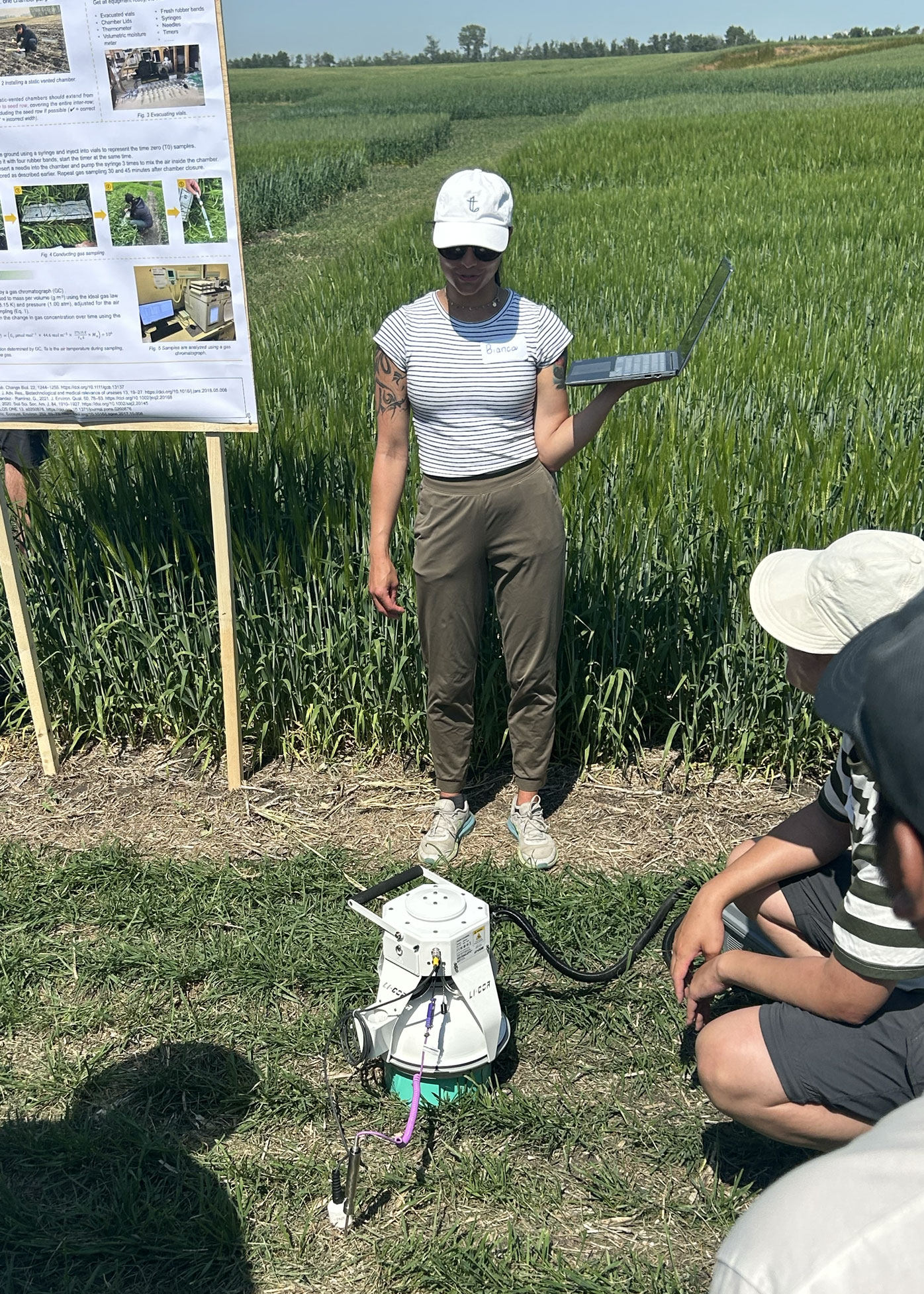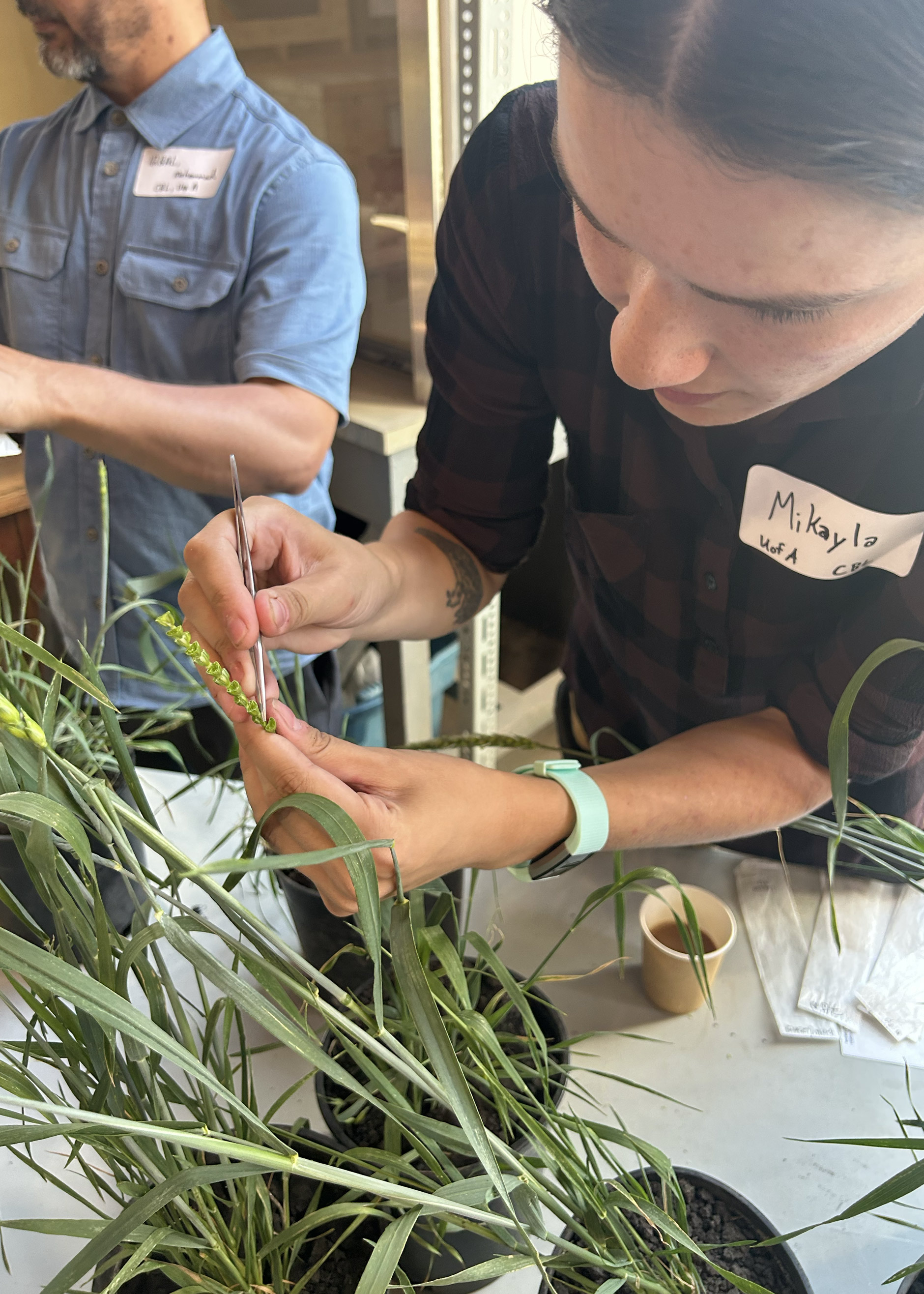The U of A Crop Science Field Day cultivates knowledge
Shelby MacLeod - 7 August 2024

Attendees learn about crop science first hand from wheat breeder Gurcharn Brar, one of many presenters at the day-long event.
How can we design plants today for the climate of tomorrow? Why is lodging, tall plants falling over, such an issue? Can you patent plant varieties? What would canola leaves taste like? At the U of A Crop Science Field Day on July 18, there were no silly questions, and no shortage of answers.
Despite the heat, over a hundred people toured fields at the Edmonton Research Station, on South Campus, and the St. Albert Research Station, to learn firsthand about current studies on crops. The crowd included producers, alumni, partners from commodity organizations, and even community members new to the discipline. With presentations comprising the sum of crop science – from soil to plants, pests and the related air conditions – it was an exceptional educational experience.

Each project was dedicated to solving agricultural and global challenges and improving current practices close to home or beyond. Canola and wheat, being two economic drivers and important nutrient sources, were common subjects. Researchers created hybrids and studied their resulting qualities, including resistance to diseases like clubroot, rust or the fish-smelling and flammable bunt. Others considered how to mitigate the impacts of agriculture by reducing greenhouse gas emissions from cattle grazing, or in crops without compromising yield. With a leg, or wing, in both the plant and soil camps were the entomologists, investigating pests like canola-inhibiting flea beetles. There was great potential overall to increase efficiency and productivity in the agricultural sector, with benefits to consumers and the environment.


Student and faculty presenters had more to share than just science and facts to share. Their passion for these projects was evident, from hours of tedious work with tweezers to emasculate wheat, to scouring fields for particular pests and hours of driving between rural research sites across Alberta, it was evident that everyone was personally motivated by this work. With much of this work often occurring independently on location or in a lab, we may forget the great size of the collective until everyone gathers at events such as these.
Participants have Linda Gorim to thank for this event, which she has been planning for a long time. "It was a pleasure to have so many people come and learn about our research," she told us. "I'm proud of our students and researchers for how well they represented this work." Her leadership shone through at this successful field day – the first to feature both research stations.
We're also grateful for the staff, faculty and student volunteers who helped make this event possible. Participants left with answers they can use this very growing season, and new ideas that will sprout and spread into the future.
This event and the research it presented is made possible by a number of supporters and sponsors: Alberta Grains, Alberta Pulse Growers, Results Driven Agriculture Research (RDAR), Beef Cattle Research Council, Alberta Canola Producers Commission, Sask Wheat Development Commission, Sask Barley Development Commission, Western Grains Research Foundation, Sask Pulse Growers, Sask Canola, Manitoba Crop Alliance, Canadian Wheat Research Coalition, Canadian Barley Research Coalition, British Columbia Peace Region Grain Industry Development Council, Natural Sciences and Engineering Research Council of Canada, Norstars Industries, Kenobie Inc., 20/20 Seed Lab, Westmet Ag.